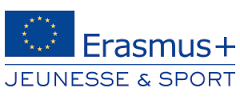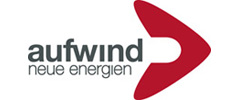Gronings Water Bedrijf (Water Company) and WECF continue cooperation to distribute tulip water filters in rural Azerbaijan
WECF and its partners in Azerbaijan Independent Consumer Union and EKOT, received a donation of 8700 Euro, enabling citizens of rural areas having access to safe water.
23.02.2012 |Margriet Samwel

Please, visit Remote Communities in Azerbaijan for further information about the project. The Case study "No safe drinking water for the region Sabirabad, Azerbaijan" provides experiences, gained via practical WECF trainings, and conclusions drawn on the situation on access to safe water and sanitation in the target villages in Azerbaijan.
Test of Water Filters
As part of the project Tulip Water Filters /TWF), donated by the Dutch drinking water supply company Groningen, were installed at 10 Azeri families and schools for testing the efficiency and the acceptance of the filters among the users. This water filter removes particles, bacteria and parasites, and prevents water borne diseases. Chemicals like nitrate, pesticides or salts are not eliminated. The filtration rate is from 4 to 5 liters per hour; depending on the turbidity till 7000 liters water can be filtered.
As a result of these tests, citizens of the target regions expressed their demand for the TWF and are waiting for the distribution and availability of these very simple to use filter. The Independent Consumers Union (ICU), a NGO network in Azerbaijan, is ready for importing the filters and to distribute the TWF in regions where safe water is lacking.
Self-supporting distribution of filters
The new donation of the “Water bedrijf Groningen“ will be used for the investments and activities related to the import and establishment of a distribution system of the first batch of 600 TWF. After this start, the filter project will be self-supporting, cost covering and providing a small income to local retailer (men and women). Access to affordable TWF should be seen as a short-term solution to improve the drinking water quality for the villagers. Including transport costs, tax and salaries, the filter will cost approximately 16 Euro for the consumer;

Background
Azerbaijan (9,1 million inhabitants) is a country with the highest infant mortality in the EECCA region; about 1,1 million preschool- and schoolchildren are infected by intestinal worms. In the target regions the main drinking water source is water of the Kura river basin, which has poor water quality due to serious industrial and agricultural pollution, as well as a lack of effective wastewater treatment systems. The Kura River starts in Turkey and cross Armenia, Georgia after reaching Azerbaijan, where it ends up in the Caspian Sea. A truck delivers untreated river water to the households in the project villages, where the water is stored and settled in containers. Other villagers serve themselves with water from the irrigation channels. Partly the households use a Marmora stone for filtering the water.
Drinking water has been identified as one of the main priorities during the needs assessment, and people are ready to pay for improvements.
Access to safe water and sanitation is a human right
The usage of a TWF will decrease the health risks of the consumer, caused by unsafe drinking water, considerable. However, it should be the task of the regional and national authorities to invest in a safe water supply and sanitation system. It should not be a policy of burdening the water and wastewater treatment to thousands of consumers. National investments, good governance and local capacity building are needed to improve the situation in villages depending on untreated or inadequate treated river water. Access to safe water and sanitation is a human right.
The villagers are looking forwards to a local centralised water treatment and distribution system, as well for a safe treatment of their wastewater.

Basic Water Needs Foundation
The Tulip water filter was developed by Basic Water Needs Foundation from the Netherlands and is now produced by Basic Water Needs India Pvt Ltd. Production started early 2008.
More information about the filters and test results are available at
http://www.basicwaterneeds.com
http://www.basicwaterneeds.com/web/download.php
Read more about WECF activities in the field of Water & Sanitation and Energy & Climate.
Donate to WECF to support our campaigns
Related News
Gronings Water Bedrijf (Water Company) and WECF continue cooperation to distribute tulip water filters in rural Azerbaijan
WECF and its partners in Azerbaijan Independent Consumer Union and EKOT, received a donation of 8700 Euro, enabling citizens of rural areas having access to safe water.
23.02.2012 | Margriet Samwel
Case Study 'No Safe Drinking Water for the Region Sabirabad, Azerbaijan'
Findings of the issues drinking water and sanitation of the 2-years WECF project implemented in the rural areas of Azerbaijan
20.02.2012 | WECF
Activities related to Water Safety Plans in 3 project communities in Azerbaijan
“Community approaches to a better environment for all and poverty reduction in out of reach communities of rural Azerbaijan“
11.10.2011 | Bistra Mihaylova
Two fruit dryers constructed and installed in the villages of Sabirabad and Saatli
“Community approaches to a better environment for all and poverty reduction in out of reach communities of rural Azerbaijan“
27.06.2011 | Anna Samwel
Community approaches to a better environment for all and poverty reduction in out of reach communities of rural Azerbaijan
Practical training how to construct solar collector, fruit dryer and solar distiller was carried out in project regions in Azerbaijan
10.08.2010 | Anna Samwel






































